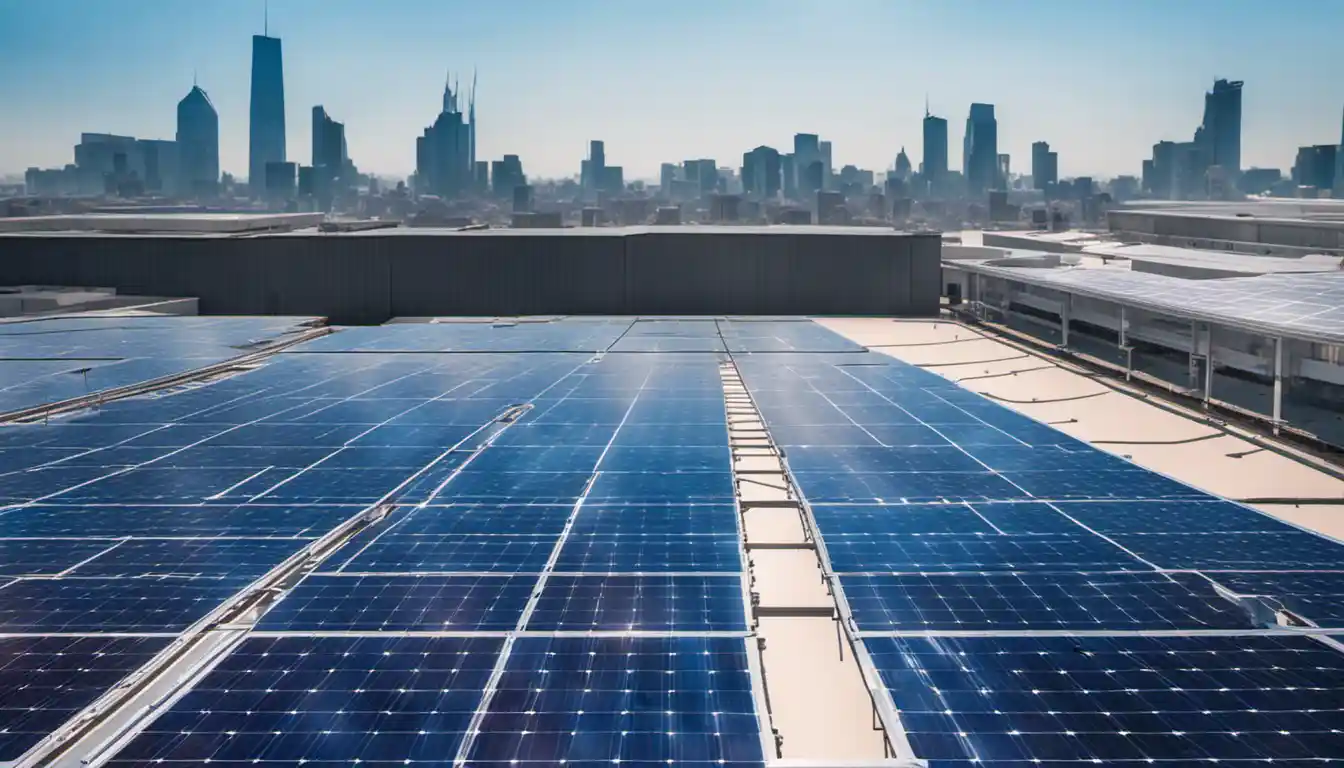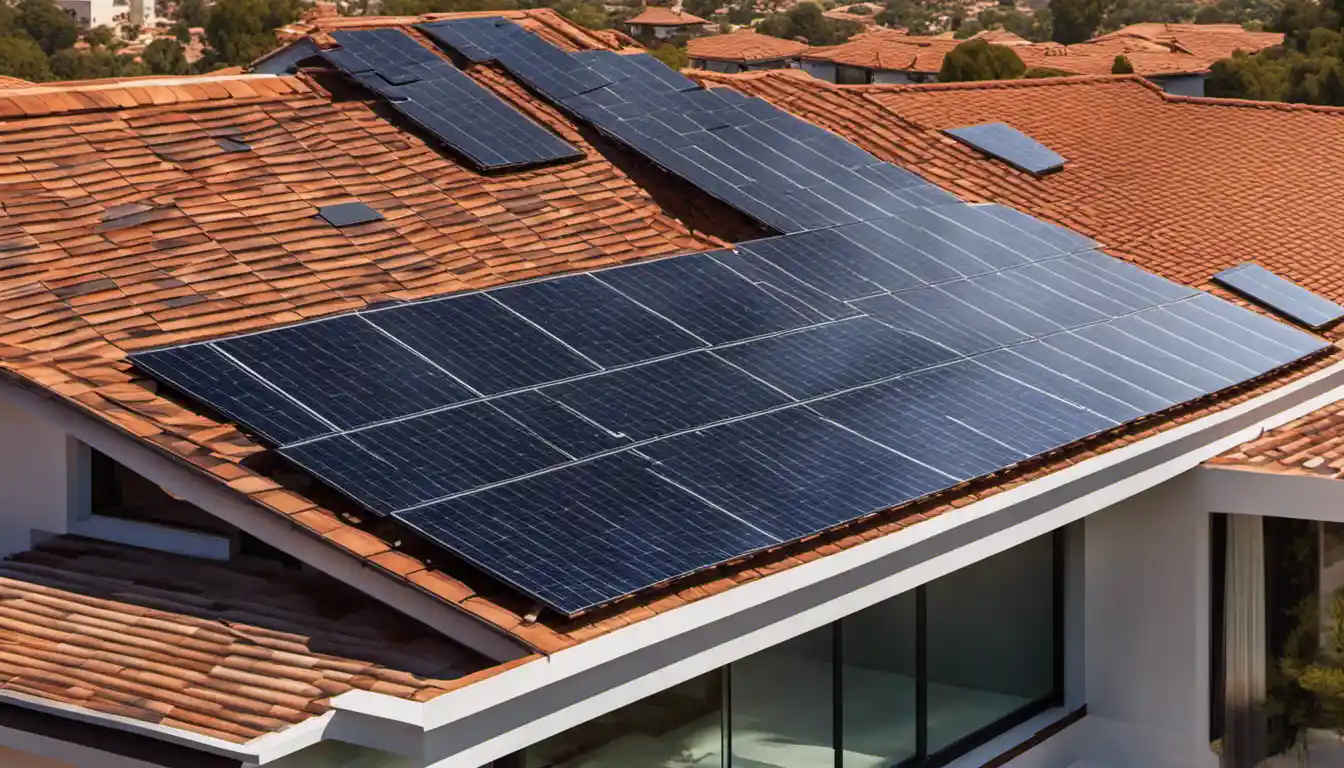Introduction to Solar Leasing
A solar lease is an agreement between a homeowner and a solar company where the company installs solar panels on the homeowner’s property at no initial cost. The homeowner then pays a fixed monthly fee for the duration of the lease, in return for using the electricity generated by the panels. The solar company is responsible for the system maintenance and repairs as they technically own the system.
What is a Solar Lease?
When deciding the most eco-friendly way to power our homes, the term solar lease often pops up. But just what is solar leasing? Think of it as renting your very own solar power station. Under a solar lease, the solar provider installs, maintains, and owns the solar panel system, while you enjoy the benefits of clean, renewable energy without the burden of ownership. It’s a bit like driving a leased car, but instead of miles per gallon, we’re talking about kilowatts per hour.
See also: How Much is a Solar Lease Per Month? Your Comprehensive Guide
Is a Solar Lease Different than a Solar PPA?
Yes, indeed! While both a solar lease and a Power Purchase Agreement (PPA) involve making use of a solar system owned and maintained by a third-party, the financial setup differs. Instead of a fixed monthly fee, with a PPA, you pay for the actual electricity the solar panels produce each month. Think of it as a pay-as-you-go scenario, very much like topping up your prepaid mobile.
See also: Pros and Cons of Solar Panel Leasing: A Comprehensive Guide
Understanding How a Solar Lease Works
See also: What Happens at the End of a Solar Panel Lease? Unveiling the Truth
Solar Lease Agreement Terms
Just like with any contract, a solar panel lease agreement comes with a set of conditions. The agreement outlines your monthly payments, the duration of your lease (usually 15 to 25 years), and an escalation rate; a fancy term for the annual lease payment increment, usually 1-5%. It also specifies the owner’s responsibilities, such as system installation, monitoring, repairs, and maintenance.
See also: Should I Buy a House with Leased Solar Panels? Pros, Cons and Insights You Need to Know
Solar Panel Lease Payments and Billing Explained
This particular part of the “how does a solar lease work” puzzle can be simplified as follows: you subscribe to solar power. Each month, instead of a fluctuating electricity bill, you pay a fixed lease fee regardless of how much energy your panels produce. In California, for example, a typical lease payment could be around $100 per month. If your system is extra productive during sunny months, you could also end up with energy credits from your utility company.
See also: Do You Get a Tax Credit for Leasing Solar Panels? Unveiling the Truth in 2022
Solar Lease Benefits

There are numerous perks to leasing your solar system. Let’s look at some of the highlights.
Advantages of a Solar Lease
Zero Upfront Costs
With a solar lease, there’s no need to lay out a sizable amount of cash to get started. The company installs the system at no upfront cost, so you can start generating renewable energy straight away without digging deep into your pockets.
Reduced Energy Bills
Any electricity the solar panels produce replaces the energy you would have drawn from the grid. So, you’re slashing your traditional utility expenditures from the get-go.
No Responsibility for Maintenance
Don’t you just hate it when something breaks down and you’re faced with an unexpected repair bill? Leasing takes away that headache, as the solar provider handles all the maintenance and repairs.
Predictable Monthly Payments
Utility rates can be a moving target. Solar lease payments, however, are fixed, offering financial predictability month in, month out.
Solar Lease Drawbacks
Of course, there are two sides to every solar panel.
Disadvantages of a Solar Lease

Ineligibility for Tax Credits and Other Solar Incentives
While solar power might sound all sunshine and rainbows, bear in mind that, when leasing, you’re not entitled to federal Investment Tax Credit (ITC) or state and utility incentives. These benefits primarily go to the owner of the system, surprisingly, the solar company.
Lower Long-Term Savings
While your pocket will be smiling in the short term due to those zero initial costs, your long-term savings will likely not be as rewarding compared to solar panel ownership.
Price Escalator
Remember that escalation rate we spoke about earlier? Year on year, your lease payment will incrementally increase by this rate.
No Value Addition to Your Property
While an owned solar system often increases your property’s value, leased systems don’t carry the same benefit, since they themselves are not an owned asset.
Difficulty Selling Your Home
Selling a home with an active lease can be a bit of a challenge. The new homeowner must be prepared to undertake your solar lease contract. Should this prove problematic, learn “how to break a solar panel lease” or “how to transfer a Tesla solar lease“.
Exploring Alternatives to Solar Leasing

Is There a Better Solar Financing Option than a Solar Lease?
Solar leases aren’t always for everyone. Thankfully, different strokes for different folks, right? Solar panel leasing, buying, and PPAs all form a trinity of popular solar financing options. To find a method perfect to your unique needs, explore an in-depth comparison between “solar panel leasing vs buying“.
Evaluating Worthiness of Solar Leasing
Should You Get a Solar Lease?
Are Solar Lease and PPA Plans Worth It?
While figuring out “how does a solar lease work” is critical, deciding whether to get one is an entirely personal decision, reflecting your specific needs and circumstances. If your priority is reducing energy bills and helping to combat climate change with little initial expenditure, a solar lease might be a great fit. However, if ownership and maximizing financial benefits are your top priorities, purchasing might be the best route. As always, weigh the pros and cons, consult with industry experts, and examine all your options before deciding.
Concluding Thoughts and Key Takeaways
Solar leasing presents an affordable, accessible, and straightforward way to embrace clean energy for many homeowners. However, always remember to do your homework, consider first your solar goals, scrutinize all available options, and most importantly, negotiate a contract you feel comfortable with.
Frequently Asked Questions About Solar Leasing
-
What happens once the solar panels are installed?
After successful installation, you’ll immediately start generating solar power, pay your fixed lease fee monthly and monitor your reduced energy bills! -
What is better, buying or leasing solar panels?
The answer varies depending on your specific needs, financial standing, and long-term priorities. Remember to examine all factors thoroughly and possibly consult with a solar expert. -
Is leasing solar panels worth it?
For many homeowners, particularly those wanting to minimize initial costs and eliminate maintenance worries, the answer is a resounding yes. -
What is a power purchase agreement?
A PPA is an agreement to pay for the solar power your system generates per month, set at a predetermined rate.



